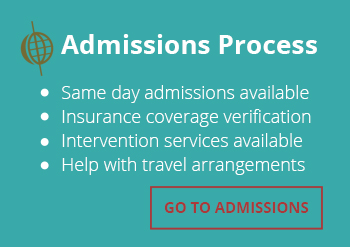 Completing the 12 steps is hard work, but a sponsor can facilitate the process by guiding you through each phase of the journey. In order to be an effective sponsor, an individual should be a sober, active member of a 12-step fellowship and must have completed the steps successfully. The 12th and final step of Alcoholics Anonymous asks members to share the message of recovery with other alcoholics — a requirement that is often fulfilled by serving as a sponsor to other members.
Completing the 12 steps is hard work, but a sponsor can facilitate the process by guiding you through each phase of the journey. In order to be an effective sponsor, an individual should be a sober, active member of a 12-step fellowship and must have completed the steps successfully. The 12th and final step of Alcoholics Anonymous asks members to share the message of recovery with other alcoholics — a requirement that is often fulfilled by serving as a sponsor to other members.
What Qualifies Someone to Be a Sponsor?
Sponsors don’t go through any official licensing or certification process in order to take on this role. In fact, the term “sponsor” was not mentioned in the first AA texts and did not become a part of 12-step vocabulary until several years after the group was founded. A sponsor is simply a recovering alcoholic or addict who learns how to help others in the following ways:
- By reading the Big Book and other AA literature
- By being an active member of a 12-step group and attending meetings
- By completing the steps with the help of his or her own sponsor
- By consulting with his or her sponsor on how to help newcomers
Many newcomers assume that once they’ve finished the 12 steps, they will never have to go through the process again. But in fact, active members continue to work the steps on a daily basis throughout their lives. The steps provide guidelines for leading an honest, stable and fulfilling life in sobriety. A good sponsor not only teaches the steps, but models them in his or her own life.
What Does a Sponsor Do?
Once you find a sponsor to help you through the 12 steps, you and your sponsor will discuss your work on a regular basis, either in person-to-person meetings, on the phone or online. A sponsor may meet with you weekly to read through the Big Book and other AA literature as you go through each step. He or she will answer your questions, provide feedback on your progress, and offer moral support when you feel uncertain or afraid.
Going through the 12 steps for the first time can take a toll on your psyche. It can also challenge your sobriety, especially in the early days of recovery. Taking an inventory of your actions and uncovering the source of your resentments will bring up a lot of painful memories and powerful emotions. A good sponsor will be sensitive enough to your reactions to help you complete the process at your own pace. Some people finish the steps in a matter of weeks; others require months or years of work before they can face the consequences of addiction.
Many alcoholics and addicts relapse while they’re going through the steps. Some drop out of the program altogether. A sponsor can’t stop you from picking up a drink or using drugs, but he or she can provide a source of strength and hope when you’re at risk of a relapse. Having a sponsor and a strong 12-step peer group can help you stay on track with your recovery plan when you feel like giving up.
What if I Need More Help?
 Most sponsors are not trained mental professionals or medical doctors; they are men and women who have learned how to lead sober lives by following the 12 steps. An experienced sponsor will not try to take the place of a psychiatrist or a doctor when professional help is needed. If you have suffered abuse in the past or you have a co-occurring mental health condition, your sponsor should encourage you to seek out a psychiatrist or therapist who can give you the help you need.
Most sponsors are not trained mental professionals or medical doctors; they are men and women who have learned how to lead sober lives by following the 12 steps. An experienced sponsor will not try to take the place of a psychiatrist or a doctor when professional help is needed. If you have suffered abuse in the past or you have a co-occurring mental health condition, your sponsor should encourage you to seek out a psychiatrist or therapist who can give you the help you need.
For many addicts and alcoholics, attending 12-step meetings and working with a sponsor aren’t enough to help them get sober. Inpatient rehabilitation programs offer a number of recovery services that an individual sponsor can’t provide, such as:
- Medically supervised alcohol or drug detox
- Intensive counseling with therapists or psychologists
- Family education and counseling
- Prescription medications to help you manage cravings and withdrawal symptoms
To give yourself the very best chance at making a full recovery, use all of the resources at your disposal. Once you’ve entered a drug rehab program, you’ll have the chance to attend 12 step meetings as part of your recovery plan. You’ll learn more about what a sponsor can and can’t do, and how you can continue to maintain your sobriety by attending 12 step meetings in the community after you graduate from rehab.
At Axis, we support you in recovery at every stage, from detox to aftercare. Our treatment plans draw from the principles of the 12 steps to support you in your efforts to stop drinking and using. To learn more about the benefits of a comprehensive rehab program that integrates the 12-step philosophy, call our intake team today.


